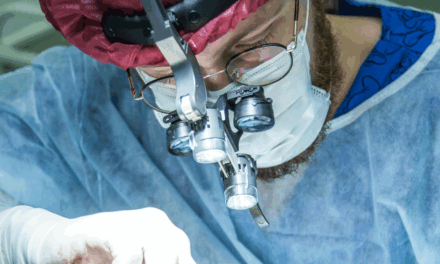Dr. Ammar Mahmoud, a distinguished cosmetic gynecological surgeon based in New York, has built a career at the intersection of empathy, innovation, and intimate health. With years of experience in addressing both functional and aesthetic needs, Dr. Mahmoud has become a trusted expert in helping women regain confidence and comfort. Known for his compassionate approach and dedication to patient-centered care, he remains a driving force in advancing the field of cosmetic surgery.
In this candid Q&A, Dr. Mahmoud shares his insights on the evolving landscape of intimate wellness, the role of innovation, and the importance of prioritizing empathy in every patient interaction.
What does “patient-centered care” mean to you in the context of cosmetic surgery?
Patient-centered care is about truly understanding the individual behind the procedure. In cosmetic surgery, this often involves addressing concerns that are deeply personal and sometimes long-standing. For me, it’s not just about achieving technical perfection but ensuring that the patient feels supported, respected, and empowered every step of the way. It’s about crafting solutions that align with their physical, emotional, and psychological needs.
How do you build trust with patients who may feel apprehensive or vulnerable?
Trust begins with listening. Many of my patients have hesitated for years to seek care because they were afraid of judgment or dismissal. I make it a priority to create a safe, open environment where they can share their concerns without fear. I also ensure complete transparency—explaining procedures, setting realistic expectations, and being honest about outcomes. Trust is built on communication and empathy, and I strive to deliver both in abundance.
Why do you believe empathy and innovation are so closely linked in your field?
Empathy drives innovation. When you truly listen to your patients, you start to see where traditional solutions may fall short. That insight pushes you to seek out or develop better options—whether it’s a minimally invasive procedure that reduces downtime or a regenerative therapy that promotes healing. My focus is always on improving patient outcomes, and innovation is a natural extension of that commitment.
Cosmetic gynecological surgery is often misunderstood. How do you combat misconceptions about the field?
Education is key. There’s a misconception that cosmetic surgery is purely about aesthetics or vanity, but that couldn’t be further from the truth. Many procedures address functional issues like discomfort during exercise, intimacy, or everyday activities. I make it a point to educate my patients and the broader community about the range of benefits these treatments offer—from improving quality of life to enhancing self-confidence. Normalizing conversations around intimate health is another crucial step in breaking down stigma.
What advancements in cosmetic surgery are you most excited about right now?
The integration of regenerative medicine, like platelet-rich plasma (PRP) and stem cell therapies, is incredibly exciting. These treatments harness the body’s natural healing processes to rejuvenate tissues and improve functionality. Additionally, innovations in non-invasive technologies, like radiofrequency and laser therapies, are expanding the options available to patients who might not want or need surgery. The future is about providing highly personalized, effective care with minimal disruption to patients’ lives.
How do you approach the consultation process with your patients?
The consultation is one of the most important parts of the treatment process. It’s where we build a foundation of trust and understanding. I encourage patients to share their goals, fears, and expectations openly. Then, I take the time to explain all available options in plain language, ensuring they feel informed and confident in their choices. My goal is to create a collaborative environment where the patient feels like an active participant in their care journey.
What role does culture play in your practice?
Culture and background significantly shape how patients approach intimate health. Some may feel hesitant to discuss certain topics due to cultural taboos or societal pressures. I’m deeply sensitive to these dynamics and work to create a space where patients from all walks of life feel respected and understood. By being culturally aware, I can tailor my approach to meet each patient’s unique needs and ensure they feel comfortable throughout their journey.
How do you measure success in your practice?
Success isn’t just about the physical results—it’s about the emotional transformation. When a patient walks into my office after a procedure with newfound confidence or tells me they’ve finally regained comfort in their daily life, that’s success. It’s not just about how they look; it’s about how they feel in their own skin. Knowing I’ve played a part in that is incredibly rewarding.
What advice would you give to someone hesitant about exploring cosmetic surgery?
Don’t let fear or stigma hold you back from seeking the care you deserve. Intimate health is just as important as any other aspect of your well-being. Start with a consultation—there’s no obligation, and it’s an opportunity to get your questions answered in a safe, supportive environment. You’re not alone, and there are solutions available that can make a meaningful difference in your life.
Dr. Mahmoud’s unwavering commitment to blending empathy with innovation has earned him the trust of countless patients. His work not only transforms lives but also helps redefine societal perceptions of intimate wellness. Through his practice, he continues to advocate for a future where every woman feels empowered to take charge of her health and confidence.



